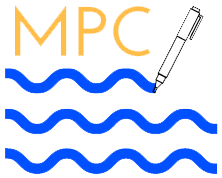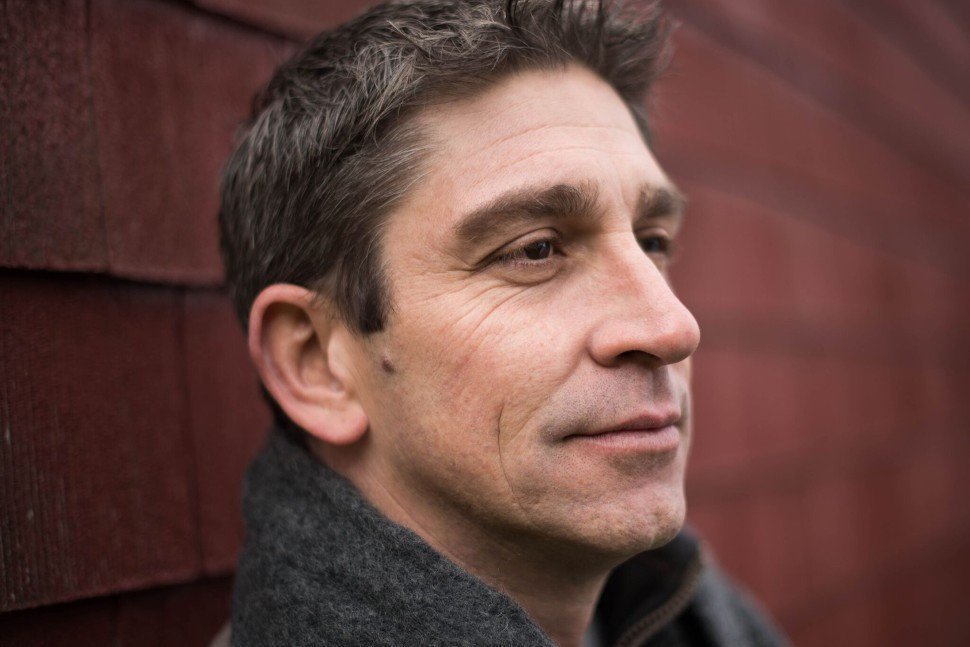America
09/27/23 Writer’s Lab Invocation Poet, Richard Blanco
América
By Richard Blanco
I.
Although Tía Miriam boasted she discovered
at least half a dozen uses for peanut butter—
topping for guava shells in syrup,
butter substitute for Cuban toast,
hair conditioner and relaxer—
Mamá never knew what to make
of the monthly five-pound jars
handed out by the immigration department
until my friend, Jeff, mentioned jelly.
II.
There was always pork though,
for every birthday and wedding,
whole ones on Christmas and New Year’s Eve,
even on Thanksgiving day—pork,
fried, broiled, or crispy skin roasted—
as well as cauldrons of black beans,
fried plantain chips, and yuca con mojito.
These items required a special visit
to Antonio’s Mercado on the corner of Eighth Street
where men in guayaberas stood in senate
blaming Kennedy for everything—“Ese hijo de puta!”
the bile of Cuban coffee and cigar residue
filling the creases of their wrinkled lips;
clinging to one another’s lies of lost wealth,
ashamed and empty as hollow trees.
III.
By seven I had grown suspicious—we were still here.
Overheard conversations about returning
had grown wistful and less frequent.
I spoke English; my parents didn’t.
We didn’t live in a two-story house
with a maid or a wood-panel station wagon
nor vacation camping in Colorado.
None of the girls had hair of gold;
none of my brothers or cousins
were named Greg, Peter, or Marcia;
we were not the Brady Bunch.
None of the black and white characters
on Donna Reed or on the Dick Van Dyke Show
were named Guadalupe, Lázaro, or Mercedes.
Patty Duke’s family wasn’t like us either—
they didn’t have pork on Thanksgiving,
they ate turkey with cranberry sauce;
they didn’t have yuca, they had yams
like the dittos of Pilgrims I colored in class.
IV.
A week before Thanksgiving
I explained to my abuelita
about the Indians and the Mayflower,
how Lincoln set the slaves free;
I explained to my parents about
the purple mountain’s majesty,
“one if by land, two if by sea,”
the cherry tree, the tea party,
the amber waves of grain,
the “masses yearning to be free,”
liberty and justice for all, until
finally they agreed:
this Thanksgiving we would have turkey,
as well as pork.
V.
Abuelita prepared the poor fowl
as if committing an act of treason,
faking her enthusiasm for my sake.
Mamá set a frozen pumpkin pie in the oven
and prepared candied yams following instructions
I translated from the marshmallow bag.
The table was arrayed with gladiolas,
the plattered turkey loomed at the center
on plastic silver from Woolworth’s.
Everyone sat in green velvet chairs
we had upholstered with clear vinyl,
except Tío Carlos and Toti, seated
in the folding chairs from the Salvation Army.
I uttered a bilingual blessing
and the turkey was passed around
like a game of Russian Roulette.
“DRY,” Tío Berto complained, and proceeded
to drown the lean slices with pork fat drippings
and cranberry jelly—“esa mierda roja,” he called it.
Faces fell when Mamá presented her ochre pie—
pumpkin was a home remedy for ulcers, not a dessert.
Tía María made three rounds of Cuban coffee
then Abuelo and Pepe cleared the living room furniture,
put on a Celia Cruz LP and the entire family
began to merengue over the linoleum of our apartment,
sweating rum and coffee until they remembered—
it was 1970 and 46 degrees—
in América.
After repositioning the furniture,
an appropriate darkness filled the room.
Tío Berto was the last to leave.
Richard Blanco
“Entering into writing a poem is an emotional endeavor for me as well as a spiritual and creative one.
Having to write those poems for the inauguration, I started asking deeper questions about my cultural identity, and my connection to America.”
Richard Blanco was born in Madrid and immigrated to the United States as an infant with his Cuban-exile family. He was raised in Miami and earned a BS in civil engineering and MFA in creative writing from Florida International University. Blanco has been a practicing engineer, writer, and poet since 1991.
In 2013, Blanco was chosen to serve as the fifth inaugural poet of the United States. Blanco performed “One Today,” an original poem he wrote for the occasion, becoming the youngest, first Latino, immigrant, and openly gay writer to hold the honor. The poem was published in book form as One Today with drawings by Dav Pilkey in 2015.
Blanco has written and performed occasional poems for such organizations as Freedom to Marry, the Tech Awards and the Fragrance Awards. In May of 2013, Blanco wrote “Boston Strong,” which he performed at the TD Boston Garden Benefit Concert and at a Red Sox game at Fenway Park. Following his performances, he released a limited edition Boston Strong chapbook, with all proceeds going to those most affected by the Boston Marathon bombings of 2013. Blanco also wrote and read a poem to commemorate the historic reopening of the United States Embassy in Havana, Cuba; the poem, Matters of the Sea/Cosas del mar, was published as a bilingual chapbook in 2015.
Blanco has received numerous honors for his writings and performances, including the National Humanities Medal, Woodrow Wilson Visiting Fellowship, a Florida Artist Fellowship, and a Bread Loaf Fellowship, as well as honorary doctorates from Macalester College, Colby College, and the University of Rhode Island. He was also named the first ever education ambassador for the Academy of American Poets. He continues to write and perform for audiences around the world. In addition to his occasional poetry and performances, he has published two memoirs, For All of Us, One Today (2013) and The Prince of los Cocuyos (2014), which received the Maine Literary Award and the Lambda Literary Award for Gay Memoir. Blanco also wrote the foreword and poems to accompany a series of vintage photographs of Cuba, Cuba Then: Rare and Classic Images from the Ramiro Fernandez Collection (2014). His collaboration with landscape photographer Jacob Bond Hessler was published as Boundaries (2017). Blanco has taught at Georgetown University, American University, Writer’s Center, Central Connecticut State University, and Wesleyan University. He is currently Distinguished Visiting Professor at Florida International University. He lives in Bethel, Maine.
His collections of poetry include omeland of My Body: New & Selected Poems (2023); City of a Hundred Fires (1998), which won the Agnes Starrett Poetry Prize; Directions to the Beach of the Dead (2005), winner of the PEN/American Beyond Margins Award; Looking for the Gulf Motel (2012), winner of the Thom Gunn Award, the Maine Literary Award, and the Paterson Prize; One Today (2013); Boston Strong (2013); and How to Love a Country (2019).
Source: https://www.poetryfoundation.org

